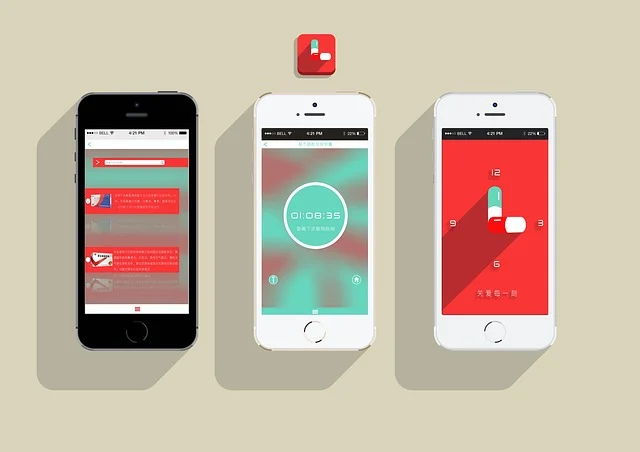Harnessing Technology for Stress Management: The Rise of Stress Management Apps
In an increasingly fast-paced and interconnected world, stress has become a pervasive issue affecting millions of individuals globally. The demands of work, personal life, and societal pressures often contribute to elevated stress levels, impacting both mental and physical well-being. In response to this growing concern, stress management apps have emerged as innovative tools designed to help users mitigate stress, build resilience, and improve overall quality of life. These apps leverage the power of technology to offer personalized strategies, mindfulness exercises, relaxation techniques, and supportive resources aimed at empowering users to manage stress effectively.
Understanding Stress and Its Impact
Stress is a natural response to perceived threats or challenges, triggering a cascade of physiological reactions in the body, including increased heart rate, elevated cortisol levels, and heightened alertness. While acute stress can be beneficial in short bursts, chronic stress—prolonged exposure to stressors—can have detrimental effects on health, leading to issues such as anxiety, depression, cardiovascular disease, and compromised immune function. Recognizing the importance of stress management is crucial for maintaining mental resilience and overall well-being.
The Evolution of Stress Management Apps
Stress management apps have evolved from basic relaxation techniques and breathing exercises to comprehensive platforms that integrate evidence-based strategies, cognitive behavioral techniques, and mindfulness practices. These apps aim to empower users with the knowledge and tools necessary to identify stress triggers, develop coping mechanisms, and foster a sense of emotional balance and resilience.
1. Personalization and Assessment:
- Modern stress management apps begin by assessing the user’s stress levels, triggers, and coping mechanisms through interactive assessments or daily mood tracking.
- Based on this information, apps generate personalized stress profiles and recommend tailored interventions to address specific needs and goals.
2. Mindfulness and Relaxation Techniques:
- These apps offer a variety of mindfulness exercises, guided meditations, and relaxation techniques designed to promote relaxation, reduce anxiety, and enhance mental clarity.
- Audio sessions and visualizations guide users through breathing exercises, progressive muscle relaxation, and mindfulness practices to alleviate tension and promote relaxation.
3. Cognitive Behavioral Therapy (CBT) and Stress Reduction Strategies:
- Integration of CBT principles helps users identify negative thought patterns, challenge irrational beliefs, and develop adaptive coping strategies.
- Tools such as thought diaries, stress logs, and behavior tracking encourage self-reflection and empower users to modify their responses to stressors effectively.
Key Features and Benefits
Stress management apps offer a range of features designed to support users in managing stress, building resilience, and improving overall mental well-being. Here are some key features and benefits that highlight their impact:
1. Education and Awareness:
- Informational resources and educational content on stress, its effects on health, and effective coping strategies enhance user understanding and awareness.
- Insights into stress management techniques empower users to make informed decisions and take proactive steps to reduce stress in their daily lives.
2. Guided Programs and Progressive Learning:
- Structured stress management programs provide step-by-step guidance and progressive learning modules tailored to the user’s pace and preferences.
- Goal-setting features and progress tracking tools help users monitor their achievements, celebrate milestones, and stay motivated on their journey to stress reduction.
3. Community Support and Peer Engagement:
- Social features such as forums, support groups, and peer networks enable users to connect with others facing similar challenges, share experiences, and provide mutual support.
- Peer support fosters a sense of community, reduces feelings of isolation, and encourages collaboration in developing effective stress management strategies.

Impact on Mental Health and Well-being
The adoption of stress management apps has had a significant impact on user mental health and overall well-being, offering tangible benefits that extend beyond stress reduction:
1. Improved Emotional Resilience:
- Regular practice of mindfulness and relaxation techniques helps users build emotional resilience, enabling them to cope more effectively with stressors and adversity.
- Techniques such as positive affirmations and gratitude exercises foster a positive mindset and enhance emotional well-being.
2. Enhanced Cognitive Function:
- CBT-based tools improve cognitive flexibility, problem-solving skills, and decision-making abilities, enhancing overall cognitive function and mental clarity.
- Stress reduction strategies promote better concentration, focus, and productivity, both at work and in daily activities.
3. Long-term Health Benefits:
- Effective stress management contributes to improved physical health outcomes, including reduced risk of chronic diseases such as hypertension, cardiovascular disease, and immune system dysfunction.
- Better sleep quality, increased energy levels, and enhanced immune function are among the many benefits associated with reduced stress levels and improved overall well-being.
Challenges and Future Trends
Despite their effectiveness, stress management apps face challenges such as user engagement sustainability, privacy concerns related to sensitive health data, and the need for ongoing innovation to meet evolving user needs. Looking ahead, several trends are shaping the future of these apps:
1. Integration of Artificial Intelligence (AI) and Machine Learning (ML):
- AI algorithms will enhance stress management apps by analyzing user data to provide personalized recommendations for stress reduction techniques and adaptive coping strategies.
- ML models will predict stress patterns and triggers, offering insights into optimal intervention strategies based on individual responses and outcomes.
2. Expansion into Holistic Wellness:
- Stress management apps will broaden their focus beyond stress reduction to encompass holistic wellness management, integrating features for sleep tracking, nutrition guidance, and physical activity.
- Collaboration with healthcare providers and integration with wearable health devices will enable comprehensive health monitoring and personalized wellness recommendations.
3. Enhanced User Experience with Virtual Reality (VR) and Augmented Reality (AR):
- VR and AR technologies will revolutionize stress management apps by offering immersive relaxation experiences, virtual therapy sessions, and interactive stress relief simulations.
- These technologies will enhance engagement, deepen relaxation responses, and provide users with new tools for managing stress effectively in diverse settings.
Conclusion
Stress management apps represent a pivotal advancement in mental health technology, empowering users to take proactive steps towards managing stress, building resilience, and improving overall quality of life. By leveraging the capabilities of mobile devices, AI, and evidence-based practices, these apps provide personalized support, education, and resources that promote long-term mental well-being. As stress management apps continue to evolve and innovate, their potential to inspire healthier coping strategies and foster positive lifestyle changes remains unparalleled. Embracing these advancements not only enhances individual stress resilience but also contributes to a broader movement towards promoting mental health awareness and well-being worldwide.




